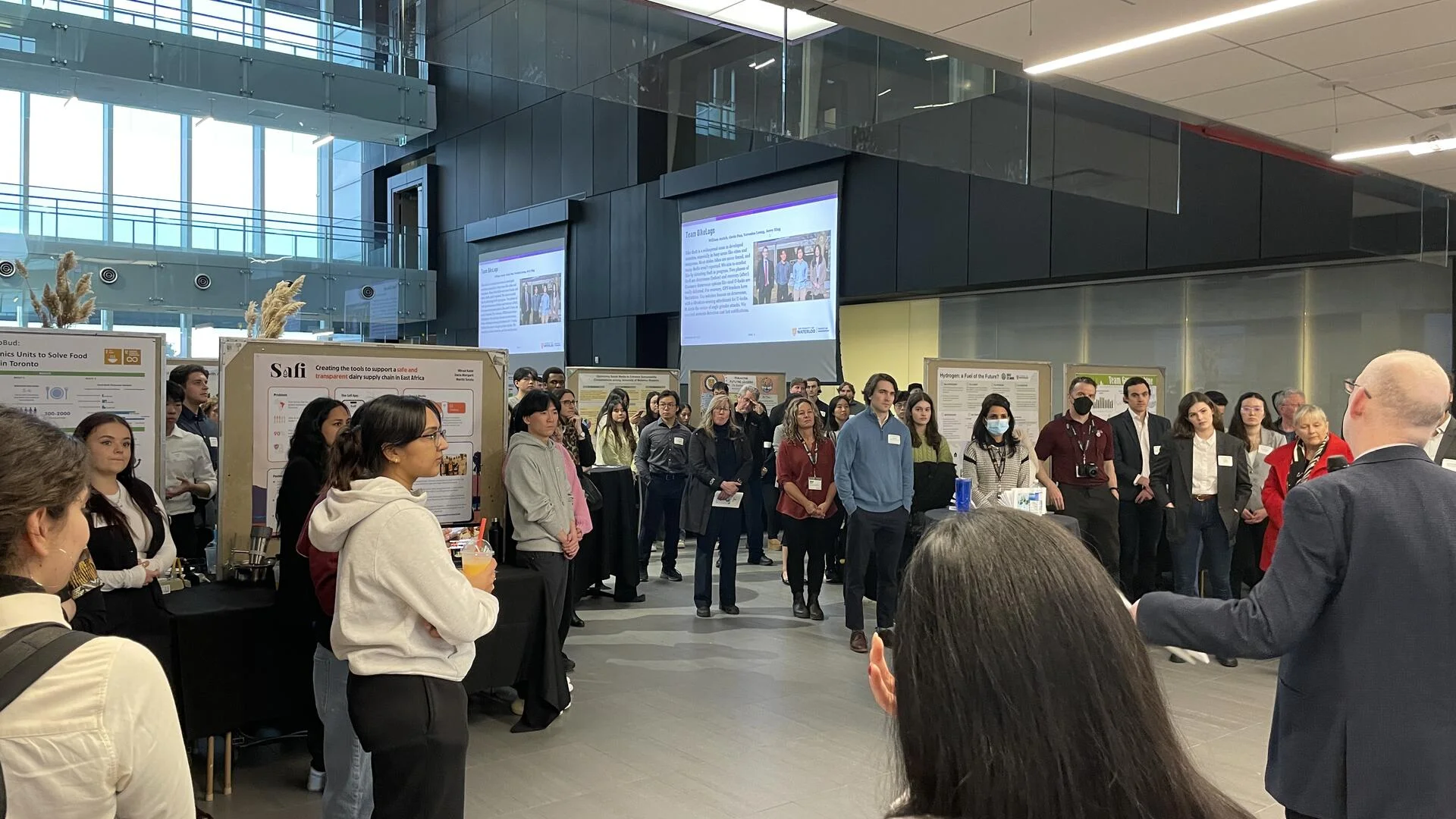Waterloo's Innovative Approach to Interdisciplinary Education and Sustainability Solutions
Key Ideas
- Three faculties at the University of Waterloo collaborated to offer the first interdisciplinary undergraduate capstone project, bringing together 155 students to propose solutions to real world sustainability challenges.
- Students tackled projects like converting surplus wind energy into hydrogen for export, showcasing the value of collaboration across disciplines and fostering innovation.
- Success stories emerged from the initiative, such as the HydroBud project that aimed to provide fresh produce to food banks and won startup funding, highlighting the real-world impact of academic pursuits.
- Waterloo is expanding the i-Capstone course to involve students from five faculties, aiming to address complex problems related to future cities through interdisciplinary teamwork.
The University of Waterloo in Canada took a groundbreaking approach by uniting the faculties of Environment, Engineering, and Math to launch the first interdisciplinary undergraduate capstone project. The collaborative effort involved 155 students who worked on proposing solutions to sustainability challenges, with industry partners like the City of Waterloo, Walker Industries, and Reverse Logistics Group presenting real-world problems. One notable project involved exploring the conversion of surplus wind energy into hydrogen for export, showcasing the value of interdisciplinary collaboration. Although the initial business case wasn't viable, students pivoted to inject hydrogen into natural gas pipelines to reduce emissions. Another success story was the HydroBud project, where students created a hydroponic company to provide fresh produce to food banks, winning startup funding. This initiative not only demonstrated the impact of merging theory with practice but also prepared students for real-world scenarios. The success of the i-Capstone course has led to its expansion to involve students from five faculties, focusing on addressing challenges related to future cities through interdisciplinary teamwork. Additionally, the Faculty of Environment at Waterloo is reshaping its educational approach through Environment 2035, emphasizing work-integrated learning to meet industry demands and prepare job-ready graduates for the evolving market. By offering diverse work-integrated learning experiences, Waterloo is ensuring students gain practical insights to complement their academic knowledge, aligning with the strategies outlined in the Waterloo at 100 plan. This forward-thinking approach aims to produce highly capable, job-ready talent to meet the future demands of the workforce, as highlighted by reports indicating the need for reskilling due to technological advancements. Ultimately, Waterloo's emphasis on collaboration, innovation, and sustainability solutions exemplifies a progressive educational model that bridges academia with industry, preparing students to be future leaders in creating sustainable solutions.
Topics
India
Innovation
Sustainability
Education
Collaboration
Job Market
Interdisciplinary
Future Cities
Work-Integrated Learning
Latest News
